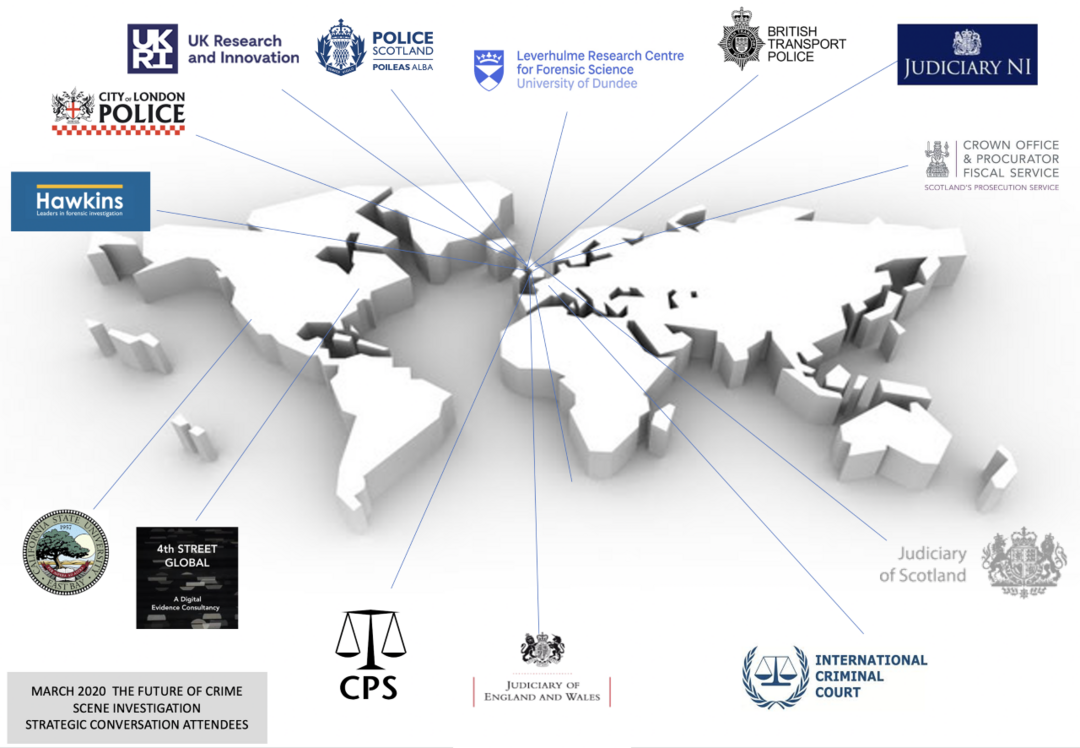The future of crime scene investigation
The practice of crime scene investigation is critical to the delivery of scientific evidence in the justice system. We know that every stage of the chain of evidence will either be enabled or undermined by practice at the scene where a crime took place. Too often the science desired by the court is divorced from the art of the possible at the scene.
In March 2020 LRCFS brought together a group of experienced international crime scene investigators to bridge the gap between the scene and the court.
They were joined by members of the public from our Citizens Jury, senior judiciary, case builders, academics and law enforcement from around the world. Participants explored the expectations that communities had of crime scene work in an era of constrained resource and rapidly evolving technologies.
The future expectations of a robotic mapping of scenes uncontaminated by humans were explored and the core expertise of operatives were identified. Only through end to end engagement that includes practitioners, can technologies that are useful and appropriate be identified.
If front line operational efficiency is possible, it will require investment in, and development of, the higher order decision making skills that CSI operatives deploy. Accreditation, training, effective communication and the development of culture are all pressing concerns.
The clash of volume versus complex crime requires policy clarity and political will. All of this will impact on public confidence in a practice that is frequently represented in fiction but is undervalued in reality.

Attendees to the March 2020 Strategic Conversation
We are undertaking a number of projects in this area and welcome collaborations.
If you want to get involved, please get in touch with us:
+44 (0)1382 38 80 91
LRC@dundee.ac.uk
